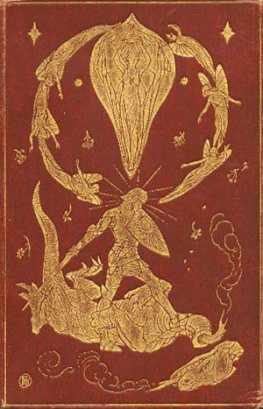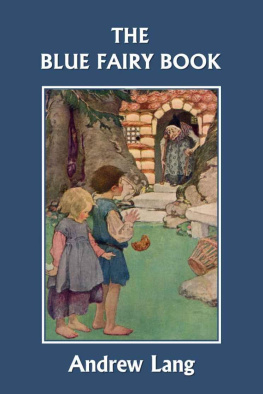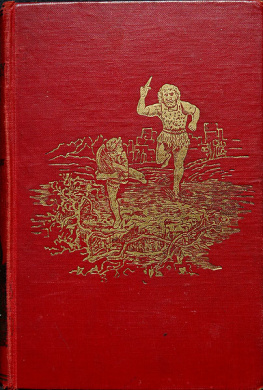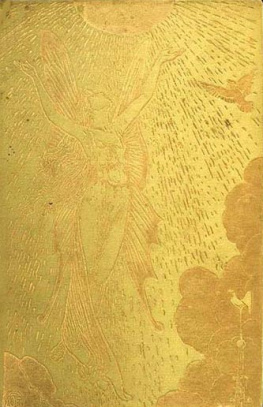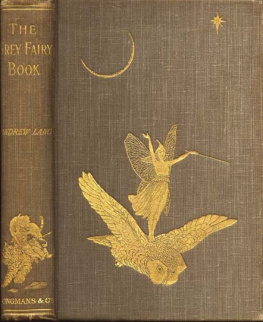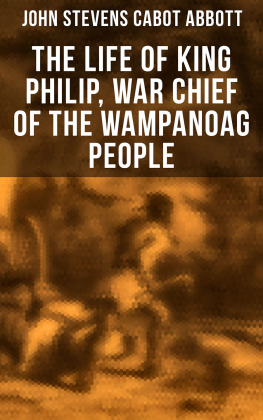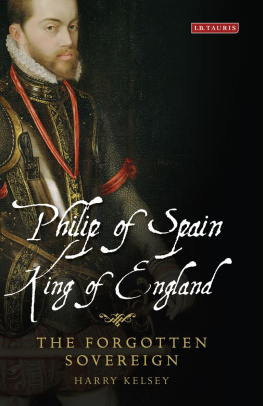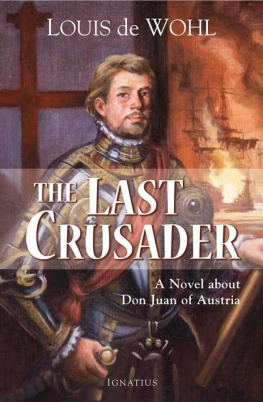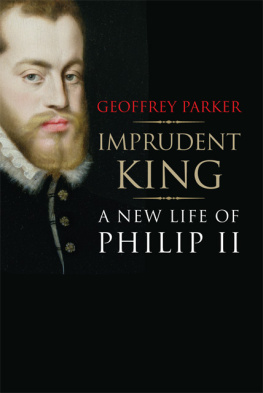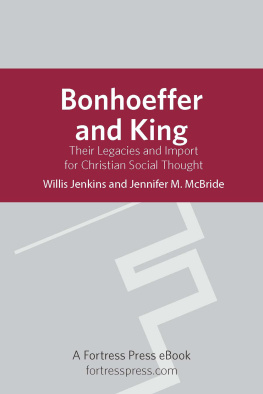Historical Mysteries
Andrew Lang
Contents:
Andrew Lang (1844-1912)
Historical Mysteries
I - The Case Of Elizabeth Canning
Ii - The Murder Of Escovedo
Iii - The Campden Mystery
Iv - The Case Of Allan Breck
V - The Cardinal's Necklace
Historical Mysteries, A. Lang
Jazzybee Verlag Jrgen Beck
86450 Altenmnster, Loschberg 9
Germany
ISBN: 9783849606893
www.jazzybee-verlag.de
admin@jazzybee-verlag.de
ANDREW LANG (1844-1912)
Biographical Sketch from "Portraits And Sketches" by Edmund Gosse
INVITED to note down some of my recollections of Andrew Lang, I find myself suspended between the sudden blow of his death and the slow development of memory, now extending in unbroken friendship over thirty-five years. The magnitude and multitude of Lang's performances, public and private, during that considerable length of time almost paralyse expression; it is difficult to know where to begin or where to stop. Just as his written works are so extremely numerous as to make a pathway through them a formidable task in bibliography, no one book standing out predominant, so his character, intellectual and moral, was full -of so many apparent inconsistencies, so many pitfalls for rash assertion, so many queer caprices of impulse, that in a whole volume of analysis, which would be tedious, one could scarcely do justice to them all. I will venture to put down, almost at haphazard, what I remember that seems to me to have been overlooked, or inexactly stated, by those who wrote, often very sympathetically, at the moment of his death, always premising that I speak rather of a Lang of from 1877 to 1890, when I saw him very frequently, than of a Lang whom younger people met chiefly in Scotland.
When he died, all the newspapers were loud in proclaiming his "versatility." But I am not sure that he was not the very opposite of versatile. I take "versatile" to mean changeable, fickle, constantly ready to alter direction with the weather-cock. The great instance of versatility in literature is Ruskin, who adopted diametrically different views of the same subject at different times of his life, and defended them with equal ardour. To be versatile seems to be unsteady, variable. But Lang was through his long career singularly unaltered; he never changed his point of view; what he liked and admired as a youth he liked and admired as an elderly man. It is true that his interests and knowledge were vividly drawn along a surprisingly large number of channels, but while there was abundance there does not seem to me to have been versatility. If a huge body of water boils up from a crater, it may pour down a dozen paths, but these will always be the same; unless there is an earthquake, new cascades will not form nor old rivulets run dry. In some authors earthquakes do take place as in Tolstoy, for instance, and in S. T. Coleridge but nothing of this kind was ever manifest in Lang, who was extraordinarily multiform, yet in his varieties strictly consistent from Oxford to the grave. As this is not generally perceived, I will take the liberty of expanding my view of his intellectual development.
To a superficial observer in late life the genius of Andrew Lang had the characteristics which we are in the habit of identifying with precocity. Yet he had not been, as a writer, precocious in his youth. One slender volume of verses represents all that he published in book-form before his thirty-fifth year. No doubt we shall learn in good time what he was doing before he flashed upon the world of journalism in all his panoply of graces, in 1876, at the close of his Merton fellowship. He was then, at all events, the finest finished product of his age, with the bright armour of Oxford burnished on his body to such a brilliance that humdrum eyes could hardly bear the radiance of it. Of the terms behind, of the fifteen years then dividing him from St. Andrews, we know as yet but little; they were years of insatiable acquirement, incessant reading, and talking, and observing gay preparation for a life to be devoted, as no other life in our time has been, to the stimulation of other people's observation and talk and reading. There was no cloistered virtue about the bright and petulant Merton don. He was already flouting and jesting, laughing with Ariosto in the sunshine, performing with a snap of his fingers tasks which might break the back of a pedant, and concealing under an affectation of carelessness a literary ambition which knew no definite bounds.
In those days, and when he appeared for the first time in London, the poet was paramount in him. Jowett is said to have predicted that he would be greatly famous in this line, but I know not what evidence Jowett had before him. Unless I am much mistaken, it was not until Lang left Balliol that his peculiar bent became obvious. Up to that time he had been a promiscuous browser upon books, much occupied, moreover, in the struggle with ancient Greek, and immersed in Aristotle and Homer. But in the early days of his settlement at Merton he began to concentrate his powers, and I think there were certain influences which were instant and far-reaching. Among them one was pre-eminent. When Andrew Lang came up from St. Andrews he had found Matthew Arnold occupying the ancient chair of poetry at Oxford. He was a listener at some at least of the famous lectures which, in 1865, were collected as "Essays in Criticism"; while one of his latest experiences as a Balliol undergraduate was hearing Matthew Arnold lecture on the study of Celtic literature. His conscience was profoundly stirred by "Culture and Anarchy" (1869); his sense of prose-form largely determined by "Friendship's Garland" (1871). I have no hesitation in saying that the teaching and example of Matthew Arnold prevailed over all other Oxford influences upon the intellectual nature of Lang, while, although I think that his personal acquaintance with Arnold was very slight, yet in his social manner there was, in early days, not a little imitation of Arnold's aloofness and superfine delicacy of address. It was unconscious, of course, and nothing would have enraged Lang more than to have been accused of "imitating Uncle Matt."
The structure which his own individuality now began to build on the basis supplied by the learning of Oxford, and in particular by the study of the Greeks, and "dressed" by courses of Matthew Arnold, was from the first eclectic. Lang eschewed as completely what was not sympathetic to him as he assimilated what was attractive to him. Those who speak of his "versatility" should recollect what large tracts of the literature of the world, and even of England, existed outside the dimmest apprehension of Andrew Lang. It is, however, more useful to consider what he did apprehend; and there were two English books, published in his Oxford days, which permanently impressed him: one of these was "The Earthly Paradise," the other D. G. Rossetti's " Poems." In after years he tried to divest himself of the traces of these volumes, but he had fed upon their honey-dew and it had permeated his veins.
Not less important an element in the garnishing of a mind already prepared for it by academic and aesthetic studies was the absorption of the romantic part of French literature. Andrew Lang in this, as in everything else, was selective. He dipped into the wonderful lucky-bag of France wherever he saw the glitter of romance. Hence his approach, in the early seventies, was threefold: towards the mediaeval lais and chansons, towards the sixteenth-century Pleiade, and towards the school of which Victor Hugo was the leader in the nineteenth century. For a long time Ronsard was Lang's poet of intensest predilection; and I think that his definite ambition was to be the Ronsard of modern England, introducing a new poetical dexterity founded on a revival of pure humanism. He had in those days what he lost, or at least dispersed, in the weariness and growing melancholia of later years a splendid belief in poetry as a part of the renown of England, as a heritage to be received in reverence from our fathers, and to be passed on, if possible, in a brighter flame. This honest and beautiful ambition to shine as one of the permanent benefactors to national verse, in the attitude so nobly sustained four hundred years ago by Du Bellay and Ronsard, was unquestionably felt by Andrew Lang through his bright intellectual April, and supported him from Oxford times until 1882, when he published " Helen of Troy." The cool reception of that epic by the principal judges of poetry caused him acute disappointment, and from that time forth he became less eager and less serious as a poet, more and more petulantly expending his wonderful technical gift on fugitive subjects. And here again, when one comes to think of it, the whole history repeated itself, since in " Helen of Troy " Lang simply suffered as Ronsard had done in the "Franciade." But the fact that 1882 was his year of crisis, and the tomb of his brightest ambition, must be recognised by every one who closely followed his fortunes at that time. Lang's habit of picking out of literature and of life the plums of romance, and these alone, comes to be, to the dazzled observer of his extraordinarily vivid intellectual career, the principal guiding line. This determination to dwell, to the exclusion of all other sides of any question, on its romantic side is alone enough to rebut the charge of versatility. Lang was in a sense encyclopaedic; but the vast dictionary of his knowledge had blank pages, or pages pasted down, on which he would not, or could not, read what experience had printed. Absurd as it sounds, there was always something maidenly about his mind, and he glossed over ugly matters, sordid and dull conditions, so that they made no impression whatever upon him. He had a trick, which often exasperated his acquaintances, of declaring that he had " never heard " of things that everybody else was very well aware of. He had " never heard the name " of people he disliked, of books that he thought tiresome, of events that bored him; but, more than this, he used the formula for things and persons whom he did not wish to discuss. I remember meeting in the street a famous professor, who advanced with uplifted hands, and greeted me with " What do you think Lang says now? That he has never heard of Pascal! " This merely signified that Lang, not interested (at all events for the moment) in Pascal nor in the professor, thus closed at once all possibility of discussion.


